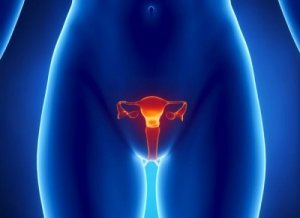5 Secondary Effects of Ovarian Cancer

Cancer is a disease that is caused by the abnormal development of cells. These cells divide, grow and spread in any part of the body, and are completely out of control. And it’s important to know the effects of ovarian cancer.
While normal cells divide and die within a specific period of time, cancer cells lose the ability to die.
This causes them to divide without limit, forming masses commonly known as tumors. These masses can also destroy and replace all the normal tissue around them.
However, although each type of cancer is caused by the same process of division, each type has a number of distinct symptoms.
So if you’re looking to find out what symptoms a person suffering from ovarian cancer will experience, read on.
Signs and Symptoms of Ovarian Cancer
Ovarian cancer is the fifth most common type of cancer in women, and is the cause of more deaths than any other.
This type of cancer involves the growth of abnormal cells on the tissue that covers the ovary.
The disease can be detected on the basis of a number of symptoms. Although these become more noticeable the more advanced the cancer is, there are a number of symptoms that appear in the early stages, such as:
1. Inflammation

One of the first symptoms presented by women suffering from ovarian cancer is swelling or inflammation in the abdominal area.
And although this symptom may also be caused by another disease, you should pay attention if it affects you frequently and for long periods – in this case it may be associated with cancer.
And if abdominal inflammation is accompanied by weight loss, it may be related to cancer.
2. Pain

This is one of the most important symptoms that can help you diagnose ovarian cancer, especially if it appears frequently and without any explanation.
The pain can be of low, medium or high intensity, focusing mainly on the pelvic region, the abdomen and the back.
In addition, this pain also occurs when having sex.
3. Gastrointestinal Problems

Generally, women with ovarian cancer have great difficulty eating enough food. This is because they quickly feel full at mealtimes.
And, this can lead to significant weight loss in women suffering from ovarian cancer.
In addition, they may also suffer from gastrointestinal problems such as diarrhea and constipation.
4. Problems Urinating
In the same way, women suffering from ovarian cancer often notice a constant need to urinate.
However, you should be aware that this can could also be from a urinary infection or weakness in the pelvic floor muscles.
To determine the cause of this problem, you should make an appointment with a gynecologist or related specialist as soon as possible.
5. Changes in the Menstrual Cycle

Among other symptoms that women with ovarian cancer often experience is changes in the menstrual cycle.
This is because tumors can generate hormonal alterations and lesions in the cervix.
These symptoms, like the others we have mentioned, are related to other types of diseases. However, they tend to be persistent when they originate from ovarian cancer, and may occur between 7 and 12 times per month.
Having read all of the above, we hope it’s clear how important it is to pay attention to any changes in your health – they could help you detect this deadly disease earlier.
Also keep in mind that the only way to determine whether the symptoms are in fact related to ovarian cancer is by going directly to a specialist.
The relevant specialist will be able to carry out the necessary exams to help you diagnose ovarian cancer as early as possible. So, you can put your mind at ease by knowing if the symptoms are originate from a different condition.
This text is provided for informational purposes only and does not replace consultation with a professional. If in doubt, consult your specialist.








